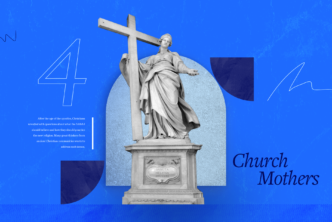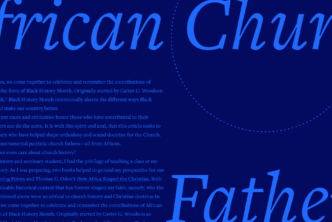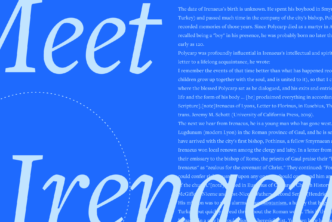This post is adapted from Church History for Modern Ministry: Why Our Past Matters for Everything We Do by Dayton Hartman.
I used to suffer from chronological snobbery, but that wasn’t my only problem. I was also arrogant, rude, and condescending to those who were not enlightened enough to hold to my particular theology. I went so far as to change my “religious views” on my Facebook page to “correct.” Moreover, I saw myself as a great gift to the Church. This hubris came through in the tone of my sermons. I didn’t love the Bride of Christ well. I was a ministry train wreck waiting to happen.
Conformity or unity
The more I studied Church history, the more I realized that I was a theological bully. (Don’t misunderstand me: There are doctrinal non-negotiables that we must defend, earnestly.) I was more concerned with conformity—as in conforming to what I believed—than I was with gospel unity in my church. As my understanding of Church history grew, my pride was dismantled.
I realized that many of the secondary doctrines (for example, eschatological views)—ones I prided myself for believing—cost many of our forebears their lives. I wasn’t extraordinary for believing these doctrines; instead, I was the beneficiary of extraordinary men and women. I learned that earnest, but strident Christians like Luther submitted themselves to the Word of God, desiring their thoughts, words, and deeds to be reproved, corrected, and built up in God’s righteousness. Often this means admitting that you’re wrong.
Conformity or unity
I saw how theological giants such as Augustine, Calvin, and Jonathan Edwards preached boldly but with the tenderness of shepherds who cared for their sheep. They preached truth—not from a position of arrogance, but from a posture of humble submission to Scripture.
Moreover, I recognized that those mentioned here never sought to be heroes of the faith. They pursued faithfulness.
While I assumed that I was a gift to the Church, those who impacted the Church for all ages were content with loving the Bride of Christ.
I began to see a pattern emerging: Those who affected the Church the most were more concerned with the story of Christ’s Bride, his Church, than their own story.
And in a moment of sobering thought, led by the Holy Spirit, I recognized that Church history is the story of Christ’s Bride—growing, preparing, and being prepared for her wedding (Rev 19–20).
***
This post is adapted from Church History for Modern Ministry: Why Our Past Matters for Everything We Do by Dayton Hartman, available now through Lexham Press.
The headings and title of this post are the additions of the editor. The author’s views do not necessarily represent those of Logos.






